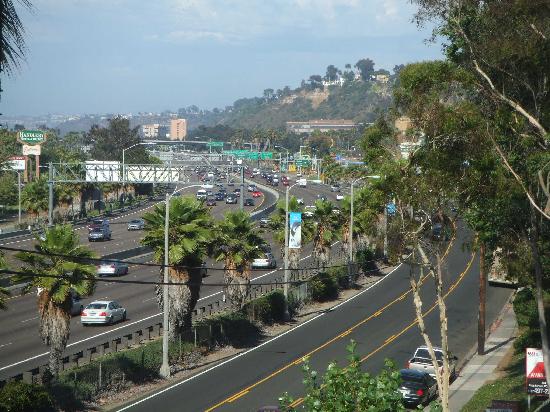
The Los Angeles Times published a remarkable editorial today questioning why so little is done about the public health crisis caused by Southern California's reliance on freeway travel. However, either because of confusion or lack of will, the editorial stops short of proposing any real solutions to the crisis. It merely note it exists.
The first step, is admitting you have a problem.
The Times reports:
University research over the years has found substantially worse air pollution adjacent to freeways, and worse health among nearby residents as well. A 2005 USC study concluded that children who lived within a quarter of a mile of a freeway were 89% more likely to have asthma than those living a mile away. The closer they lived to freeways, the higher the asthma rates. But these university studies, though they added to our collective knowledge, did not affect government regulations.
While the Times earns kudos for talking about the danger posed to those living near freeways, there are two points left out of the editorial that are crucial to understanding why freeway pollution is ignored in policy settings and informs just how difficult a battle to reign in said pollution will be.
The first is that there are powerful interests that want to see the current transportation system, a system that literally cripples and enfeebles the people that live near it, continued. Oil companies, car manufacturers, construction unions, are just some of the giants that will fight meaningful change in transportation policy unless the new policy involves clean car programs.
For examples, Xcel Energy is looking to pervert the democratic process in Boulder, Colorado because the city wants to convert to clean power. Locally, AAA and car dealerships have eschewed the public process to pull the levers of power behind the scene to attempt to block a road diet and protected bike lanes plan on South Figueroa Street.
The second problem missed by the Times is that the people whose lives are devastated by the pollution creating freeways are not the people creating the pollution. Traditionally, the communities dissected by asphalt scalpels are the poorest and least likely to wield power behind-the-scenes. Not coincidentally, they are also least likely to own cars and travel on a freeway for work/recreation/whatever.
The Times' only proposed solution isn't actually a solution at all, but a proposal to mitigate just a small portion of the impacts of our fossil-fuel transportation system. By suggesting air filters for residences near freeways, the Times' wel intentioned solution would do nothing for people that spend part, or most, of their day outside.
If the Times' is serious about reducing the destructive impacts of freeways on our region's public health, the first step would be stopping the expansion of the network while the region builds out a transit system. That means opposing the 710 Big Dig. It means opposing the other 710 expansion project. It means fighting the 405 expansion in the O.C. It means exposing the ridiculous waste of the I-405 Sepulveda Pass Project. Transportation writer Laura Nelson is more than capable of writing these stories, the issue is whether researching and writing them will be a priority for the editorial board.
Sadly, "admitting you have a problem" is the easiest step in what would be a long battle against freeway impacts. The steps above don't stop the damage that is already occurring, just slow its growth. The next step involves a campaign to halt highway expansion statewide while a Fix-It-First policy of road and transit repair goes into place. Once California has done that, the next step is working on some freeway removal.
If today's editorial is the first of many needed steps to begin a real campaign, than kudos to the Times. If it's just a one-shot editorial, the Times could have done more for the environment by saving the paper and not printing.





